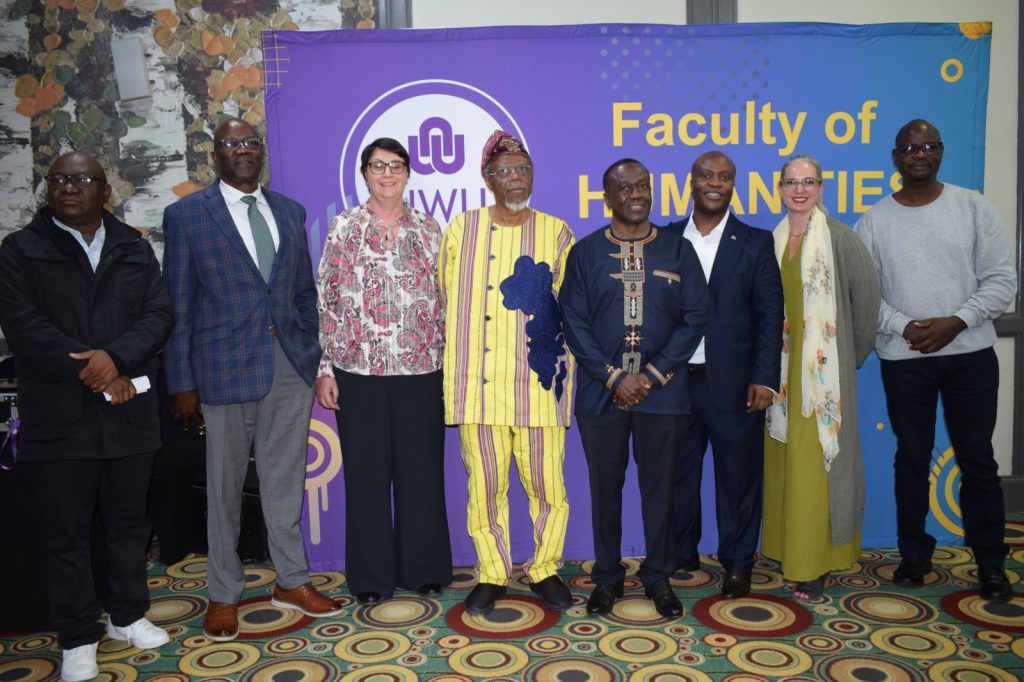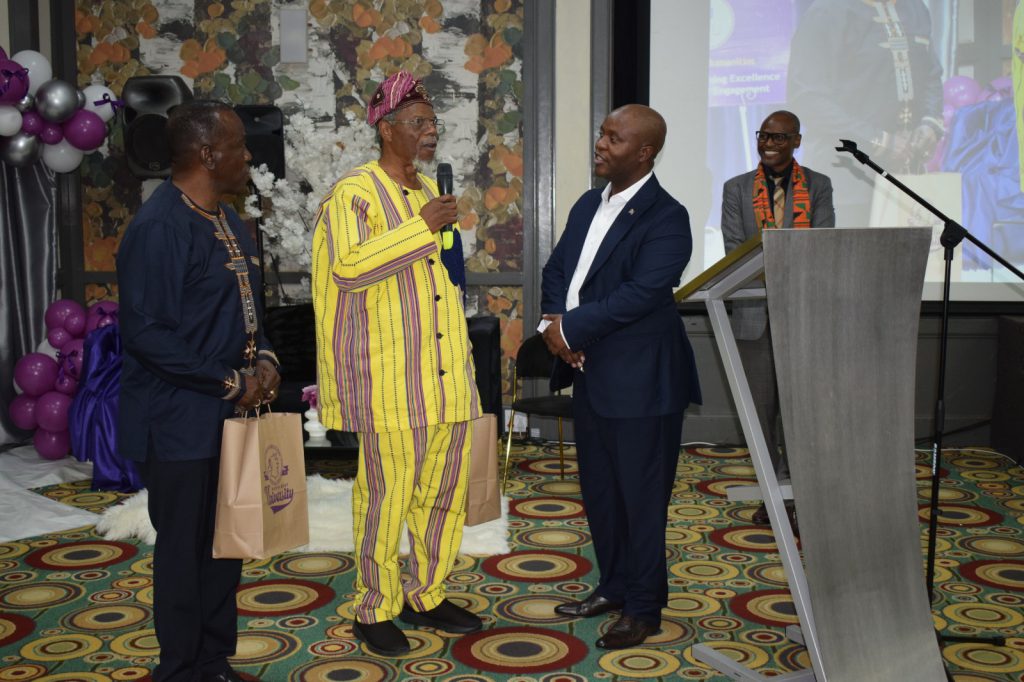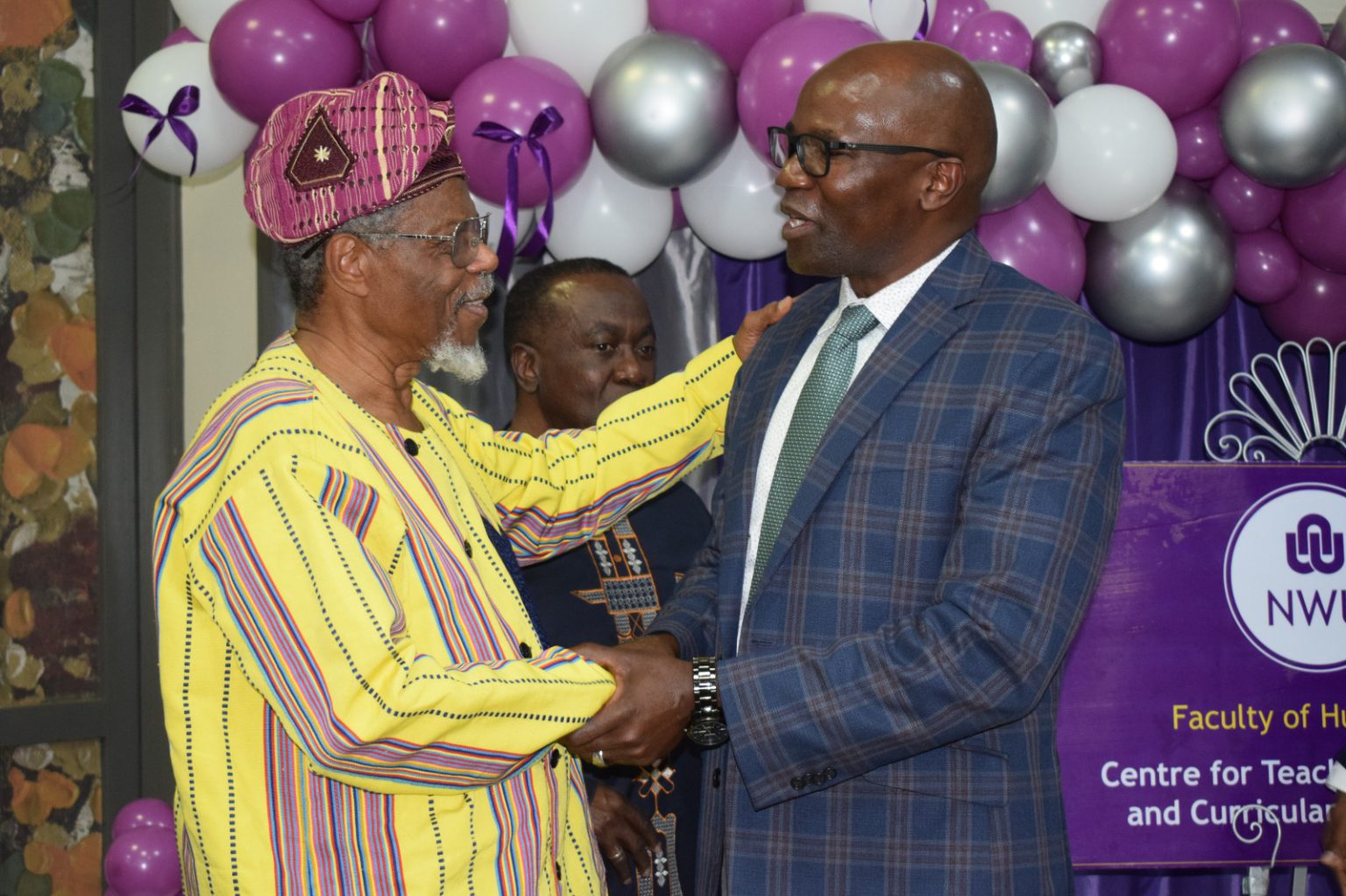By Toyin Falola
African universities are having continuous debates on the best approach to balance the sciences with disciplines addressing moral reasoning, history, and culture among their students. “Humanities Education for African Futures” suggests that many policymakers and institutions are now concentrating their attention on programs motivated by technology and science, which has put humanities departments in a challenging situation. Many people who are enthusiastic about disciplines like history or the arts find themselves in the position of having to defend the relevance of their chosen fields as a result of this tendency, which has resulted in a decline in the number of scholarships available for philosophical or literary studies. They are faced with the assumption that there is no direct economic gain connected with such activities, which is a viewpoint that puts human-centered concepts in danger of being ignored.
One of the elements influencing this trend is the generally accepted view that mathematics and scientific investigation may drive development at a faster pace than political or cultural reflection. Many African countries give quick results, such as employment possibilities, foreign investments, and verifiable influence, great importance. While departments of philosophy or language studies struggle to show why they should be relevant, research money and political favor tend to go toward subjects that promise immediate results. Still, the article argues that voices preserving indigenous storytelling traditions and considering ethical and governmental issues will determine Africa’s future, not merely in terms of programmers or engineers. The grand scheme of things calls for more thought than just immediate financial success or technological innovation. This requires an understanding of community, history, and moral priorities since these elements all contribute to defining how development truly happens in daily life.

Another factor causing the humanities to be at a crossroads is the legacy of colonial models still present. At many different universities, the most crucial decisions on what to study and how to educate follow trends originally set by outside forces. While European theories predominate in fields dedicated to literature, history, or philosophy, it is usual practice to marginalize indigenous knowledge systems. This kind of arrangement helps one to see that African viewpoints are not of worldwide importance. Many students leave these programs without having a strong basis in their local epistemologies. Therefore, they could come to believe that their cultural identities are in some sense less genuine than Western models. This lecture emphasizes the need for these departments to recapture regional values and knowledge systems significantly related to the issues of the present day if African intellectual life is to develop.
Conversely, those who study the humanities often stress how their job develops society responsibility as well as self-awareness. The extensive reading of literature and the involvement in open-ended ethical debates help one to develop critical thinking skills. This supports the questioning of structures of power and helps to improve civic life, therefore, beyond mere academic theory. Apart from this, it helps to improve storytelling abilities, which are crucial for the expansion of cultural industries such as digital media, publishing, and movies. These sectors are all expanding and help to create a more vibrant creative market throughout the country. By considering these results, legislators can help to avoid a one-sided drive for scientific or economic expansion. Rather, they might have a wide view of growth that honors cultural vitality as well as technical benefits.
Many times, the subject of debate centers on whether, in this technologically advanced era, the humanities may offer useful advantages. When quick-hire degrees in engineering or computer science would offer a more direct path to employment, why should students spend their years immersed in literary study, historical archives, or philosophical debate? Many pupils have this question on their minds. Nonetheless, graduates in disciplines such as history and linguistics assert that they provide unique interpretive skills to public policy, creative enterprises, and worldwide outreach—all of which can be equally competitive in terms of determining long-term success. Ignoring the humanities, it is claimed, not only jeopardizes the continuity of culture but also the larger sense of direction society should be headed toward: justice and ethical behavior are threatened.
Colonial influences abound even now. This could lead to a cycle whereby African intellectuals assess themselves depending on standards that overlook the reality of the local surroundings. Many educational institutions still depend mostly on Western canon-based curricula, giving European literary masterpieces or classical philosophers top priority. These ideas can hide the thoughts of indigenous writers and thinkers whose points of view are more directly pertinent to the daily experiences of African people who go through; they are not trivial. Students may be unaware of historical people or oral traditions from their areas, even when they can read novels spanning hundreds of years from Europe. This method deprives them of the chance to study contemplations of government, conflict resolution, or moral standards that have evolved out of local conditions.

Those who criticize this paradigm contend that if it is taken out of the civilizations it is meant to assist, real development cannot be fully comprehended. Advocates of the “decolonization” of educational programs—that is, schools should incorporate African writers, oral histories, performance art, and criticisms of imported educational systems—are growing in numbers. This does not mean, then, that Western writings should be thrown aside or that worldviews should be rejected. Rather, it underlines the need to find balance to guarantee that African intellectual traditions are on level ground. This will help the humanities to grow more responsive to ongoing social issues, including demands for justice and inclusive governance. Graduating students who have acquired knowledge of both local knowledge and global theory can engage more actively in public life and challenge policies that do not fairly represent the social fabric they live.
Still, a challenge is the issue of employment possibilities. Those who graduate from the humanities without degrees in science or business have been said to be less likely to have fulfilling jobs. Among the vibrant creative sectors throughout the continent are film, literature, and music. The driving factor behind cultural exports is these sectors. These disciplines support publication, digital media, and international projects, bringing African viewpoints front and center in the worldwide political and cultural scene. If a humanities graduate has strong writing and analytical abilities, they can land jobs in journalism, policymaking, nonprofit leadership, and other areas. The humanities, when given prominence and resources, drive creative economies. The more people who understand the value of art, narrative, and cultural legacy, the more likely they will be to invest in it and disseminate its impact on home as well as foreign markets. This cycle gains self-sustaining power.
Digital platforms are turning more and more common as a trend. If literary groups and community-based historians create online archives and interact with readers on social media, they can share their findings without depending on conventional gatekeepers. Many members of the younger generation—many of whom obtain much of their knowledge from the internet—this simple approach of communication allows room for fresh voices and interacts with them. Furthermore, it questions the idea that disciplines pertaining to the humanities are fixed in time from a past age. Forward-looking websites, virtual exhibitions, and digital storytelling seminars allow communities to probe ethical issues surrounding technology and representation. These choices let communities relate these issues to African settings in a way that fits real social and economic concerns. Furthermore, there is a more significant benefit when communities come to see how local stories fit global events; they grow to see themselves as participants in those conversations rather than as creators of common narratives.
Based on these dialogues, many voices from throughout the African continent are requesting a closer review of the standards used in academic settings to define what qualifies as meaningful knowledge. They argue that classrooms should not regard African epistemologies as peripheral or secondary and that research should not be confined just to Western canons. Scholars have noted that just as rigorously as in more institutionalized fields, indigenous ideas, oral histories, and local histories all provide insights. Including these customs into the humanities curriculum helps educational institutions create a system more closely matched with the social, political, and economic life of African students. When this is done, not only does it improve the educational opportunities for pupils, but it also promotes intellectual sovereignty. This motivates researchers and students to design fresh areas of research instead of merely following accepted standards set by others.
For a very long time, oral traditions have been a major component of the building of cultural identity; so, there is increasing interest in conserving them as new technology makes data collecting and sharing easier. By means of platforms such as audio recording, interactive archives, and virtual storytelling, communities can chronicle their knowledge and then share it with a larger audience. In this sense, historical forms of wisdom, which could have been overlooked, may be rediscovered and taught in concert with current scholarly studies. Leading participants in this movement stress that “modernizing” humanities education does not always mean rejecting the past. Conversely, well-designed digital projects can link ancient proverbs, customs, and lineages to continuous discussions on democracy and innovation. Such partnerships also help to boost the creative economy; for instance, imagine the production of digital exhibits, podcasts stressing the several African points of view on questions of ethics, justice, and social well-being, or documentary film series.
As this is happening, linkages between several disciplines of study are becoming more and more important. This work stresses how more philosophical, linguistic, and cultural studies departments may complement general applications in the domains of business, science, and policy. Both legislators and economists gain from the application of such knowledge when insights on historical precedents or community values guide their actions. By working with ethicists, technology developers can get clarity and make sure that new tools uphold local standards and avoid only replicating global injustices. This cross-pollination highlights a very important point: the humanities cannot exist in a vacuum. Their analytical depth can be applied in many different fields, including the construction of more inclusive government policies and media business content generation improvement.
Public participation calls for still another area of focus. Graduates of humanities degrees often bring complex ideas to the table when it comes to local government, activism, and civil society projects since they are educated to examine stories and the power dynamics that lie under them. When citizens have a thorough awareness of history, they are more suited to spot propaganda and oppose false rhetoric. Philosophical models help to clarify the ethical consequences of policy discussions by also forcing legislators to justify how their ideas meet the needs of society. Creative sectors then welcome these points of view, offering consumers music, movies, and literature that challenge major social issues instead of only entertainment value. This could lead to a public sphere more participatory, healthier, and in which people will find themselves reflected in the events surrounding them.
Reformers contend that governments and educational institutions must adopt broader criteria for defining what constitutes excellent academic performance if these possibly transforming opportunities are to materialize. Funding groups as well as research projects should recognize how the humanities could inspire moral progress in economic growth, laws, and technology. Research projects should accept questions molded by local events. The lecture notes indicate that momentum is starting to gather already. Innovators across a range of African settings—including digital archives in West Africa and cooperative storytelling hubs in East Africa—are redefining the idea of “scholarship”. These kinds of sites not only help to keep the intellectual heritage of Africa from disappearing but also inspire fresh approaches of including the humanities into daily life. The conversation then turns to policy strategies and cooperative models that might form the basis for this movement, therefore helping to create an academic scene more inclusive and forward-looking.
Though many of the possible recommendations center on revamped courses and financial support, a change in perspective is equally vital; academics and funding agencies can collaborate creatively to ensure that research in the domains of philosophy and literature gets the same degree of support as technology projects. The industry’s participation is also quite significant since companies cooperate on projects, proving how ethical frameworks, media tactics, and responsible development can be driven by cultural knowledge. Though the reality is that these fields can flourish in a range of contexts, including policy councils, publishing, design consultancies, and other environments, a graduate of the humanities is sometimes seen as stuck in theory. Encouragement of graduates to see these disciplines as a road to creative leadership will help them to develop their confidence in their relevance. Furthermore, teachers and administrators can collaborate on flexible curricula—that is, curricula including African books, oral histories, and philosophical views in addition to well-known works from all around the globe. Combining several voices and experiences helps to sow the seeds for more sincere discussions on justice and development.
A strong humanities ecosystem gives the continent the fuel for fresh approaches to thinking. With the help of digital archives and worldwide networks, faculty and students can investigate topics relevant to local situations and concerns. These subjects cover the cultural roots of conflict and the nature of oral heritage in forming leadership styles. After this, this knowledge is shared outside of the classroom into the spheres of daily life, therefore closing the distance between theoretical debate and experience. To further their influence, civic leaders, activists, and artists can be asked to speak directly on campuses or via web seminars. Media companies may fund writing contests or debates to show that human-centered research inspires innovation and guides the development of moral standards. By means of flexible partnerships—that is, the sharing of resources between businesses, academic institutions, and philanthropic activities— departments of the humanities can effectively establish a strong foothold.
Maintaining local ownership of academia is one of the key elements in retaining authentic African viewpoints. Many people have found that honoring cultural narratives helps one to more successfully handle the most important social and political issues. These tales could be found in communal rites, praise poetry, or philosophical treatises written in languages regarded to be traditional. Maintaining these customs makes a clear statement about how important the humanities are to African society—they are not an accessory acquired from another culture. This legacy offers hope for the future as well as knowledge of the challenges of the past. It spans spoken-word events occurring in contemporary Kenya as well as West African epics. The cultivation of these forms emphasizes the entwined character of art and academics, which in turn helps communities to resist limited economic criteria of progress.
Considering all these several layers—politics, money, curriculum development, and local knowledge—a coherent story comes forth. When the humanities are given respect and when they are entwined into technology, government, and creative projects, they avoid human stories and moral wisdom from being pushed to the background. Though the needs of the economy and the search for scientific knowledge are significant, the human component defines how individuals treat their neighbors, how they handle problems, and how they share resources. The humanities help one to develop ethical purpose, awareness of history, and a flair for narrative that echoes through movies, books, and music. Intellectual circles that support these basic ideas help to create environments in which social involvement and critical inquiry coexist, therefore strengthening the security of Africa going forward.
Each of these reflections helps us to see that the humanities are not intellectual leftovers. Amplified voices of moral philosophers, poets, and storytellers provide a basis for society conversation. They also challenge accepted institutions or power systems. When we take into account the advancement in the fields of music, film, literature, and government on the continent, it is clear that a deliberate effort to foster humanities education has the power to shape national consciousness in ways that simply technical approaches cannot do. Policymakers may talk about digital markets or industrial techniques, but societies run the danger of being confused if they follow ethical standards without considering other cultures. Africa is able to retain its own stories and boost its agency in both regional and worldwide spheres by means of the revitalization of humanities courses, investments in creative industries, and rewriting of previous teaching strategies. Africa can enjoy its unique cultural richness and actively participate in continuous global dialogues as it has embraced the humanities as an equal partner in its development. This is an achievement with lifetime value.
- Excerpts of Public Lecture, Center for Teaching Excellence, North-West University, South Africa, May 8, 2025. I am grateful to my host, Professor Mpho Chaka, Deputy Dean for Teaching and Learning.


